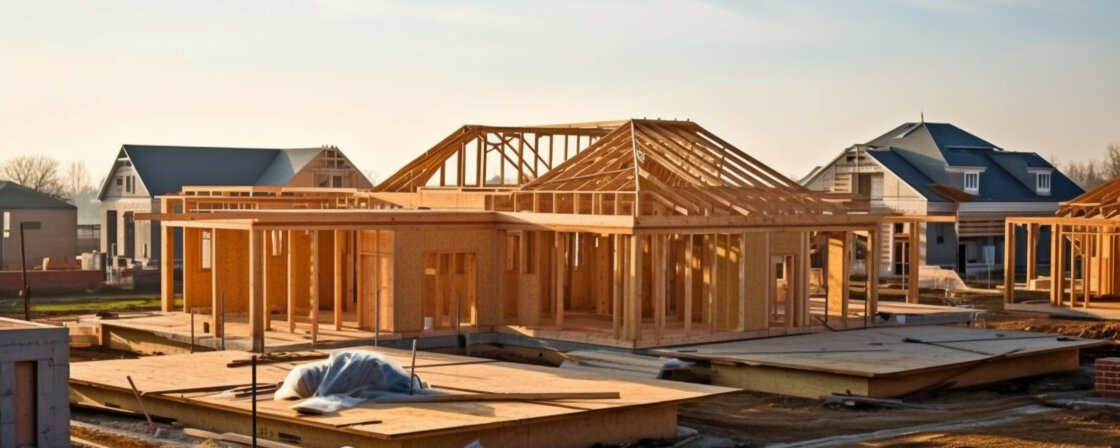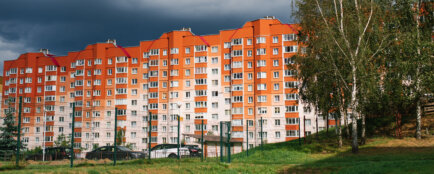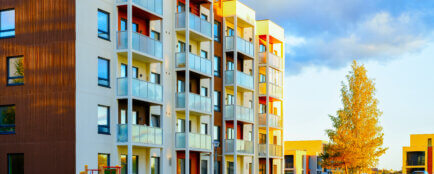What is a prefabricated house and a turnkey modular house
A prefabricated and turnkey modular home are types of homes that are built off-site in a controlled factory environment and then transported to the final site for assembly. There is little difference between the two types. The main difference is that modular homes are manufactured and transported as whole modules (i.e., a cube containing the ceiling, floor and walls) and are installed in their entirety on the foundation. A prefabricated turnkey house is then manufactured into smaller structural sections and the joining of these components takes place on site.
The main features of prefabricated and modular houses include:
- Factory construction: prefabricated homes are manufactured in sections or modules in the factory.
- Transportability. Modular homes are usually placed by crane, while prefabricated homes can be assembled in a matter of days by manpower alone.
- Speed of construction: prefabricated houses are much faster to build compared to traditional construction methods. The main construction takes place in the factory, so bad weather can’t slow down construction. Meanwhile, construction of the components in the factory usually takes several months from the time the order is placed, and the actual assembly is often completed in a few days. So if you have ordered a modular or prefabricated turnkey house, you will be living in it in just a few months.
- Energy efficiency: prefabricated houses contain energy-efficient elements and materials, which ensures low energy consumption, especially for heating and cooling.
- Sustainability: prefabricated and modular homes tend to be designed with sustainability in mind. The controlled manufacturing process reduces waste and the materials are usually environmentally friendly and energy efficient.
Are you solving a similar problem?
Real Estate Purchase or Sale
We provide comprehensive legal services related to the purchase or sale of real estate, including reservation agreements and escrow services. We can also assist with land registry and tax matters. We can handle everything within 48 hours, even when purchasing from a developer.
I Need help
- When you order, you know what you will get and how much it will cost.
- We handle everything online or in person at one of our 6 offices.
- We handle 8 out of 10 requests within 2 working days.
- We have specialists for every field of law.
How a prefabricated turnkey and modular house differs from conventional houses
Prefabricated or modular houses differ from traditional brick houses mainly in the way they are built and the materials used. These are the main differences:
1. Time
As already mentioned, prefabricated houses are mainly built in a factory, whereas the actual construction of a modular house on site (joining the parts together) takes only a few days. The only conventional construction work is the laying of the foundation slab, which usually takes place while the modular house is being constructed in the factory. From placing the order to the finished modular or prefabricated turnkey house, it usually takes 3-6 months.
Conventional brick houses represent a somewhat more demanding process. The rough construction with roofing must be finished before winter to allow for frost. Work then resumes when temperatures rise. In addition, the entire house is built on site, which can make construction very difficult. The main obstacles are bad weather and a shortage of craftsmen, which can prolong the process considerably. The total construction time is therefore around 10 months.
Tip for article
Tip: House construction is most often dealt with on the basis of a works contract. Let our lawyers review or draw up a construction contract. We’ll make sure that the creation and delivery of the work is legally free of any ambiguities, unreasonable risks and hidden pitfalls.
2. Materials
For prefabricated and modular houses, the main material is wood. This means that they are much less environmentally demanding to build than conventional houses because wood is a renewable and natural material. Thanks to the use of wood, prefabricated houses also have thinner walls, which results in a smaller difference between the built-up area and the living space.
3. Price
The price of prefabricated houses and traditional turnkey houses is not that different. Modular or prefabricated houses are usually cheaper, but these are only minimal differences. However, there are also situations where brick houses can be cheaper. An example would be a prefabricated log cabin made of thick pieces of wood.
In terms of running costs, the differences are more pronounced. In fact, prefabricated and modular houses are highly energy efficient thanks to modern technology. The heating costs of a prefabricated house, for example, are on average 30% lower than for a conventional brick house. On the other hand, masonry houses have the advantage of being able to ‘soak up’ heat better and thus retain heat for longer.
Tip for article
Mobile homes and container homes can also save you money and time. Find out what to look out for when buying a mobile home, how mobile homes are regulated by legislation and what to look out for when renting one.
How prefabricated turnkey and modular houses are regulated by legislation
Legislation does not define the concept of modular houses or prefabricated houses, and therefore building authorities have relative freedom in their decision-making. If your prefabricated house is less than 25 m2 and you do not plan to connect it to the utilities, then you do not need to get planning permission (as is the case with conventional houses up to 25 m2). You will, however, need planning consent.
If your house is over 25 m2 then the building authority will view it as either a conventional building or a product that fulfils the function of a building. In the first case, you will face the same obligations as for a conventional building. You must therefore obtain a building permit or notification. You will therefore have to submit all the necessary information, data and consents.
If the modular or prefabricated house will be considered as a product fulfilling the function of a building, you will also need a building permit or notification. In addition, you will need to provide the building authority with documents from the manufacturer to prove that the house meets the requirements for housing. The house must therefore meet the requirements for structural, thermal insulation and fire protection properties.
Size restrictions
As can be seen, the construction of modular or prefabricated houses is not restricted by our legislation. However, you would run into a problem if you wanted to build an apartment building or other large building in this way. The height of such houses is limited by Czech legislation to 12 metres, i.e. four storeys. However, it can be assumed that with the growing need for ecological construction and the spread of wooden buildings across Europe, this rule will change over time. Many other European countries do not have such a restriction. As a result, the first high-rise buildings made of wood are being built in Scandinavia and Germany, for example.
Prefabricated turnkey or modular house and mortgage
These types of houses do not have a long tradition in our country and are often considered unreliable by banks (especially in terms of their durability). This is why some banks may give you a mortgage for a prefabricated or modular house on worse terms than for a conventional building. Another cause of mortgage problems is the specifics of the construction.
Tip for article
Tip: When building a house, you may encounter problems in the form of incomplete delivery or a reluctance to claim for defects. These problems can often lead to court. If you are planning to file a lawsuit, contact us. We will assess your chances of success in court and propose a solution that will lead to the desired outcome.
Brick houses are built gradually and over a longer period of time. At the beginning, an estimate of the price of the house is made , and you get an advance from the bank based on this estimate. Once you have exhausted the advance, you provide the bank with invoices for the work done or an estimate of the current condition by a professional. You will then receive further advances for further building work. Of course, as we already know, this is not how it works with prefabricated and modular homes.
Even before the actual manufacturing process begins, the price of the house is estimated. The most common practice is then for the bank to pay the contractor directly on the basis of the works contract. However, not all banks offer this option. Generally, you will have a better chance if you choose one of the building companies that are part of the Prefabricated House Contractors Association. These have special financing programmes with banks.
If you have trouble getting a conventional mortgage for a prefabricated house, there are other options:
A pre-mortgage loan
A pre-mortgage loan is not secured on the property. It is usually valid for one year and once it expires, you need to refinance it into a conventional mortgage secured by the property. So you get a certain amount of money from the bank for which you have a prefabricated house built. When it is completed, the loan is then converted into a conventional mortgage with a mortgage on the house.
Tip for article
Tip: Are you planning to buy a house or land? We will provide you with a complete contractual and legal service related to the purchase of real estate. We will handle it within 48 hours, flawlessly and professionally.
Pledge of another property
If you own any other property, or if you own the land where you plan to build your house, you can pledge that too. Alternatively, you can also mortgage someone else’s property with their consent. Once your prefabricated or modular home is finished, you can transfer the lien to it.
A prefabricated turnkey or a modular house is a modern alternative to traditional brick houses. Their factory-built construction, modular design and energy efficiency mean faster and greener construction. Although the legislation does not have precise laws for these types of houses, the building authorities already know how to work with them and therefore there is no problem with their construction. If you are planning to finance them with a mortgage, you have to take into account that the whole process will be a bit more complicated than it is with conventional brick houses. However, if you want an energy-efficient, environmentally friendly house that you can live in as soon as possible, it is worth choosing a modular or prefabricated house.
Summary
Prefabricated and modular turnkey homes are a modern and increasingly popular alternative to conventional housing due to their fast construction, energy efficiency and eco-friendliness. Modular homes are shipped as whole modules, while prefabricated homes are assembled from individual parts on site. Both types of houses differ from conventional brick houses mainly in the way they are built, the shorter construction time and the use of environmentally friendly materials such as wood. From a legislative point of view, the rules for modular and prefabricated houses are similar to those for conventional buildings, but some exceptions apply, particularly for smaller buildings of up to 25 m². Financing these houses with a mortgage can be problematic due to different requirements of banks.




